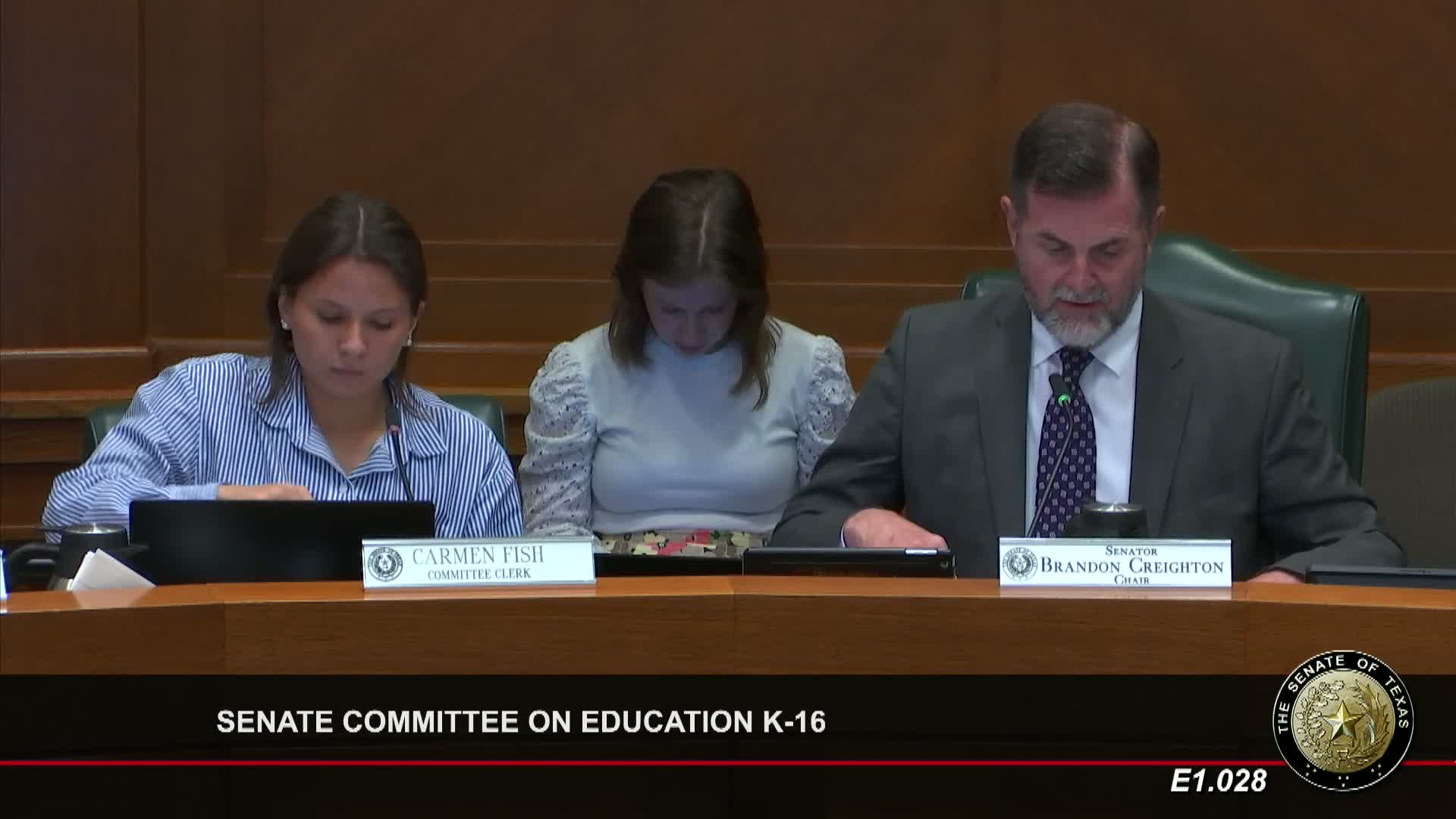Senate panel hears bill to study and reduce credit loss for community college transfers
Get AI-powered insights, summaries, and transcripts
Subscribe
Summary
Senator West presented Senate Bill 3039 to the Senate Committee on Education K‑16 as a proposal to study and address uneven acceptance of transfer credits from community colleges to four‑year universities.
Senator West presented Senate Bill 3039 to the Senate Committee on Education K‑16 as a follow‑up to statutory reforms enacted in 2019 under Senate Bill 25, saying the state continues to see an “imbalance in the acceptance of transfers” among four‑year institutions that causes students to lose credit hours when they move from community colleges.
“We have some institutions which annually reject thousands of credit hours submitted by transferring students, and some institutions who reject relatively few hours,” Senator West said, arguing that additional data collection and board recommendations are necessary to reduce credit loss and associated costs to students and taxpayers.
Deputy Commissioner Sarah Keaton of the Texas Higher Education Coordinating Board testified as a resource. Keaton said the Coordinating Board has been collecting data required under the earlier SB 25 reporting mandate and that the agency has developed the Texas Direct degree program to allow students to complete a 60‑hour block (a 42‑hour core plus 18 additional hours by subject) that transfers “as a block and be counted in whole at the 4 year university.” She told the committee, “we have 15 of them now,” referring to fields of study rolled out to date, and said data show the primary reasons credits are not accepted are the grade earned and whether the course applies to the receiving degree program.
Senator Menendez asked whether students lose on average 43% of credits when they transfer; Keaton said she was not familiar with that exact figure. Members discussed the financial and advising consequences for students who take courses that later do not apply to a terminal degree at a receiving institution.
No members of the public registered to testify on SB 3039, and the committee closed public testimony. The committee left the bill pending and scheduled no vote during the hearing.
The committee requested follow‑up information from the Coordinating Board about how much credit loss has cost students and taxpayers since SB 25 took effect, and when the Board’s reporting and the Texas Direct degree roll‑out could be measured for impact.
